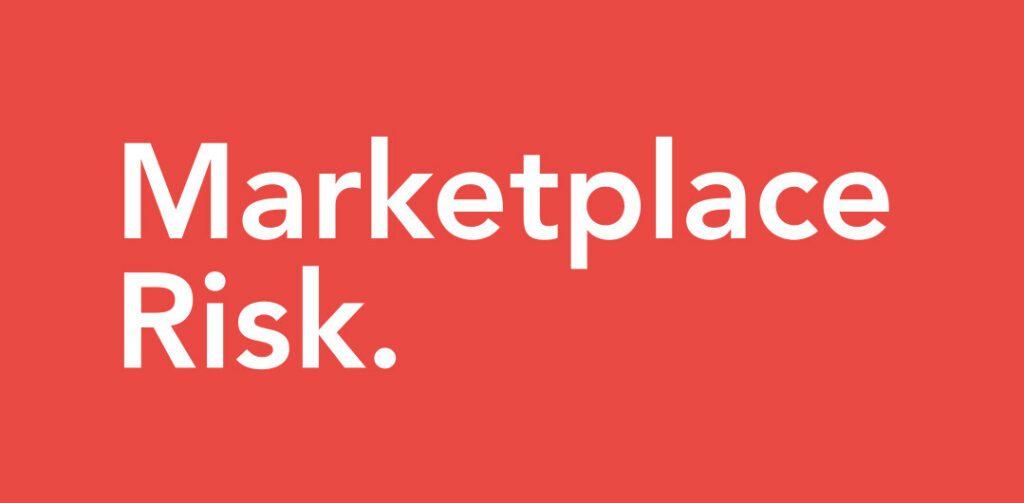Marketplace Risk San Francisco 2025 offered a rare opportunity to pause the noise and listen closely to the industry, to its undercurrents, and to the questions no one’s asking on stage. Once you’re tuned in, you begin to hear the real story: an acute urgency around platform trust, growing anxieties about emerging fraud tactics, and a shared realization that traditional safeguards are no longer enough. The concerns voiced by speakers, albeit nuanced towards their specific roles and experiences, had a clear theme…
Risk and compliance are no longer siloed functions. They are now strategic imperatives that intersect with user trust, operational efficiency, and long-term growth.
Bad actors are savvier than ever. To combat these evolving threats, organizations are searching for frameworks, not just tools, that can adapt as quickly as the threats themselves. Here were the LegitScript Team’s key takeaways from this insightful event.
1. Platform Trust Is Built on Policy and Proactive Enforcement
One of the most compelling discussions centered on how digital platforms, especially those with user-generated content, are managing trust and safety at scale. The focus was not only on maintaining robust community guidelines, but on the transparency of enforcement and the collaboration needed to keep up with increasingly sophisticated threats.
Multiple discussions highlighted the risks associated with content related to controlled substances, including how evolving tactics can outpace platform defenses. For example, in one of our LegitScript panels, we shared insights into how some companies are using deep intelligence to track evasion techniques and shape proactive policy responses. Additional speakers reinforced that content moderation is no longer just a rules-based exercise. It's an ongoing process of risk mitigation and regulatory alignment.
2. Smarter Risk Signals Are Replacing Traditional Controls
Across nearly every conversation, another sub-theme remained constant: the tools of yesterday can’t solve the problems of today. Fraud is no longer a one-dimensional threat. From Fraud-as-a-Service to AI-powered scams, bad actors are adapting faster than most platforms can update their policies.
Static rules and manual reviews are falling short in this current environment. What’s needed is an intelligence layer that helps platforms move from reactive to predictive while identifying both clear-cut violations and early signals of abuse. Our monitoring and classification frameworks are one example of this shift by offering platforms a way to detect, evaluate, and act on risk signals as they evolve.
3. Health Product Risks Are a Canary in the Platform Coal Mine
Another area that dominated attention was the growing danger posed by the online sale of GLP-1 weight-loss drugs, such as Ozempic and Wegovy. With social media influencers, compounded medications, and high consumer demand driving market volatility, platforms and payment providers are grappling with how to protect consumers without stifling legitimate commerce.
LegitScript subject matter experts helped unpack these challenges by spotlighting the regulatory blind spots and real-world harms tied to counterfeit drug sales. These conversations underscored that platforms must go beyond basic Know Your Business (KYB) checks. They need nuanced, healthcare-specific verification tools that can differentiate between legitimate compounding pharmacies and risky sellers operating outside safe and lawful boundaries.
4. User Trust Requires More Than Just Safety Nets
While technical tools are essential, they’re not sufficient on their own. Many sessions emphasized the importance of implementing user-facing strategies as critical components of a platform’s trust strategy. Specific examples were clear communication, streamlined verification, and thoughtful dispute resolution.
This approach is especially true when dealing with emotionally charged risk areas like healthcare and addiction recovery. Speakers reinforced that users expect not just safe spaces, but visible accountability from the platforms they engage with. Platforms that offer educational resources and transparent policies are better positioned to build lasting trust.
5. The Future of Marketplace Integrity Is Collaborative
A final and powerful insight from the conference was the need for cross-functional and cross-industry collaboration. No single legal, product, compliance, trust & safety team or otherwise, can address risk themselves. Similarly, no platform can face emerging threats alone. The most effective responses will come from partnerships between internal teams and external experts with deep, vertical-specific knowledge.
This is a model LegitScript has long embraced— collaborating with marketplaces, payment companies, and ad platforms to strengthen defenses and inform smarter decision-making. As fraud tactics become more complex, these partnerships are essential.
Looking Forward: Operationalizing Trust in Real Time
The road ahead for digital platforms is not without obstacles. But the organizations that embrace a proactive, intelligence-led approach to risk will be the ones that thrive. Risk isn’t static and neither is trust. They are things that must be earned and maintained in every transaction, every listing and every user interaction.





